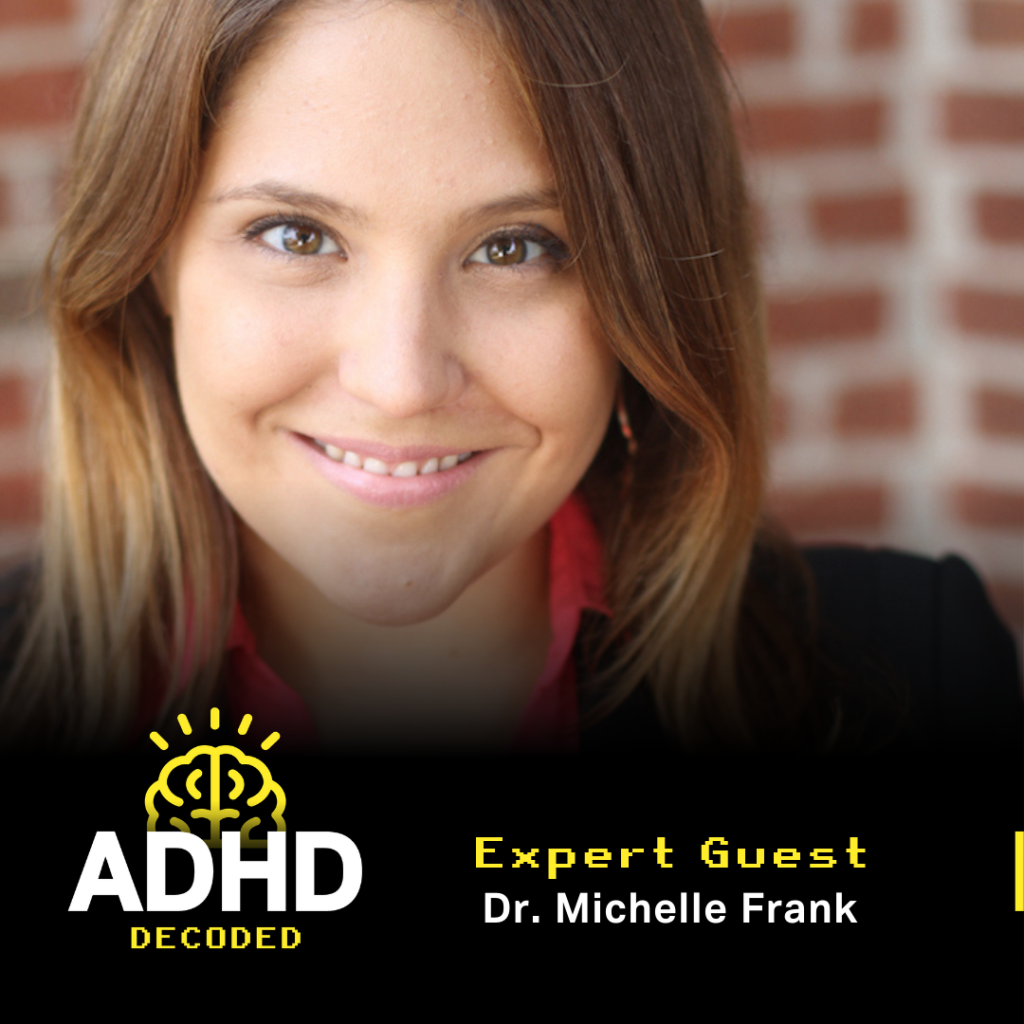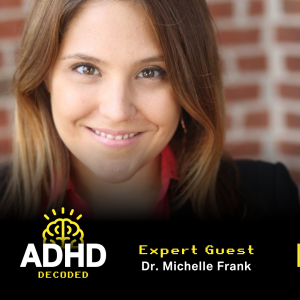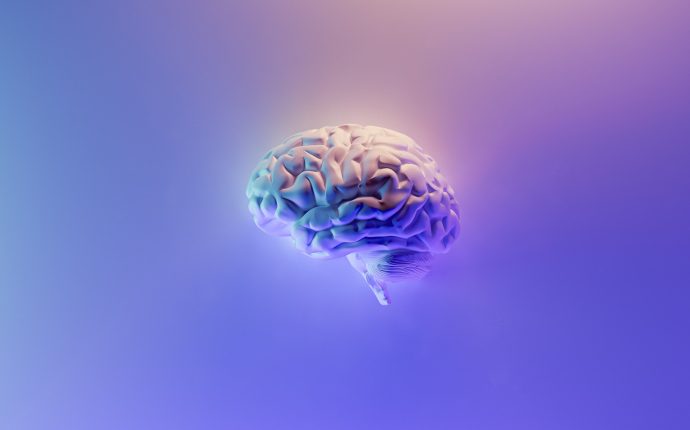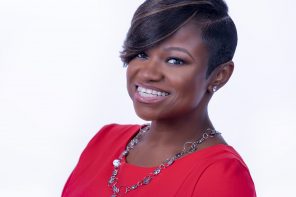Dr. Michelle Frank is a clinical psychologist and author of A Radical Guide for Women with ADHD. She specializes in the diagnosis and treatment of adults with ADHD. In her work she takes a strengths-based approach to help her clients live fully and successfully with their unique set of strengths and challenges. Dr. Frank joined us for our first episode of the ADHD Decoded Podcast, to give an intro to the ADHD Brain.
Listen to the episode
Other ways to Listen:
Key Ideas
- 4:07 – Dr. Frank defines what ADHD and how it can manifest itself in many different ways in people who are diagnosed with it.
- 7:28 – Dr. Frank explains the differences between an ADHD brain and a neurotypical brain in terms of flowing from what they can focus attention on.
- 10:31 – Dr. Frank unpacks the differences between ADD and ADHD.
- 13:55 – Dr. Frank recommends taking the VIA Strengths Survey to learn how to best utilize one’s strengths and weaknesses with ADHD.
- 18:53 – Dr. Frank describes the felt experiences with ADHD.
- 24:01 – Dr. Franks shared how strategies and tools are helpful, but curing the deficiency is not the main goal. The main goal should be to live whole lives with their symptoms.
Episode Transcript
Amanda:
Welcome to the ADHD Decoded podcast, your roadmap to understanding the ADHD brain. Here we offer you brain hacks to inspire and empower you to take charge of your life. Whether you are recently diagnosed, have been coping for years, think you might have ADHD or are wanting to learn more about the ADHD brain in general, then this podcast is for you. I am your host, Amanda Fisher and this is brought to you by the Kaleidoscope Society.
I was diagnosed with ADHD when I was 16 years old. Since then, my diagnosis is something that I have channeled into a passion for empowering others with disabilities through special education outreach, and now this podcast. I am currently a senior majoring in communication studies at St Mary’s College in Notre Dame, Indiana. This podcast was born out of a partnership with the Kaleidoscope Society and our mutual desire to empower others with ADHD and give you the tools to understand your brain better.
In this first episode, we have invited Dr. Michelle Frank to help us understand the ADHD brain and to code the basics for us. Dr. Frank is a writer, speaker and clinical psychologist specializing in the diagnosis and treatment of adults with ADHD. She takes an empowering and strengths-based approach to help her clients live fully and successfully with their unique set of strengths and challenges. She currently works at a private practice in Denver, Colorado and recently came out with her new book entitled A Radical Guide for Women with ADHD.
So without further ado, I am pleased to introduce to you all Dr. Frank.

Dr. Michelle Frank:
Hello.
Amanda:
Hi there, how are you?
Dr. Michelle Frank:
Good.
Amanda:
It’s so great to have you on the show with us on our very first episode of ADHD Decoded, so thank you so much for joining us.
Dr. Michelle Frank:
I’m so excited to be part of this. I think this is a beautiful project.
Amanda:
So Dr. Frank, you’ve dedicated your career to helping those with ADHD. What makes you so passionate about the topic?
Dr. Michelle Frank:
The ironic thing is at one point I wasn’t so passionate about it because ADHD has impacted my own life and my family’s life to a great degree. I am one of those women who flew under the radar for a lot of my life because I did well in school and nevermind the forgetfulness or the extreme impulsivity or the emotional sensitivity. It was sort of like, growing up, “Well yeah, we think you kind of have some ADHD traits,” but it wasn’t really taken that seriously because I did well enough. Right? And that’s the story of so many women.
I started doing work professionally with clients and I realized ADHD is one chronic condition where if you can help people live well with it and you can remove some of the barriers to some of the functioning challenges, you don’t just help them lead a better life. They can soar. I mean, the things that people with ADHD are capable of. Oftentimes they’re twice exceptional, so exceptionally gifted in some way and exceptionally challenged in their ADHD ways. So it’s very rewarding to work with ADHD because once you can break through some of the barriers, and there are many, we’ll talk about those later, you can really see people just sore and break free in into who they really are. I think that’s really, really cool. So that’s what keeps me going.
Amanda:
Thank goodness for all that you do, Dr. Frank. So that brings us to our next question. Could you tell our listeners the bare bones of what ADHD is?
Dr. Michelle Frank:
Yeah, I mean, I will do my best to not recite a novel here or a textbook here. So ADHD is a highly genetic, chronic neuro behavioral, meaning brain-based, condition. It looks a little different for everyone who has it. There’s no one single prototype of ADHD symptoms, but there is a cluster of them. I think it’s important to understand that years and years of neuroscience have shown us that there are very real, very valid differences in the ADHD brain as compared to a neuro-typical brain. By neuro-typical, I mean people who fall more within that typical range of functioning and don’t have ADHD, don’t have the autism spectrum. People with ADHD are considered neurodivergent or neurodiverse, So I’ll use those two terms a lot.
So for people with ADHD, what we see is that there are differences in the way that the brain regulates some of the very basic functions that help us navigate the world every day, make sense of stimuli coming our way and help us govern our behaviors, especially in light of future oriented goals or thinking ahead.
So it’s a condition that impacts self-regulation in a lot of ways. There’s differences in the reward pathways. So people with ADHD tend to experience motivation or activation differently. They tend to have difficulty responding to rewards or consequences that are far away in time. That doesn’t really register because they’re … and they tend to be kind of stimulation seeking sometimes, and that’s all because that reward pathway works differently. There are also differences in the prefrontal cortex, which is the frontal lobe, the forehead part of your brain, and what are globally called executive functioning skills. It’s a broad term, it’s an umbrella term, for a bunch of different skill sets. So things like getting going, putting your foot on the gas, but also putting on the brakes and that dance that you need to always be engaged in between the two.
Another executive functioning skill would be working memory, the ability to hold something in your memory for a short amount of time and use it. So people struggling with working memory might forget that they have their laundry in the wash. They might go to Home Depot and forget what they’re there for. They might forget to call somebody back, but they might have great memory about other things. So it’s not global memory, it’s working memory. Then there are a few other categories. Scientists go back and forth with how they define executive functioning skills, but some others are the ability to sequence your behavior over time, and have goal-oriented behavior. Sustaining effort and attention, distractability and attention tuning out things that are happening outside of you, but also tuning out unnecessary thoughts or sensations like the tag on your shirt. Tuning things out so that you can tune in. Again, we have another dance between attending to something and not attending to extraneous stimuli. So you can see there’s a lot of back and forth where the ADHD brain would struggle.
All of these different subsets of skills are like two sides of the same coin, and for a neurotypical brain they’re regulated pretty well. They might not want to do something but they can still make themselves do it and they can then make themselves stop if they need to transition into the next activity. They can tune out extraneous noise from outside the window down the block and tune into what’s happening right in front of them. Then if a baby cries in the other room, quickly turn their attention and transition to that. They’re able to sort of flow, whereas the ADHD brain has trouble with the stop and go. That comes down to some issues around hyper and hypo arousal in the brain, which for a lot of people with ADHD tends to feel true.
They feel like they’re zero to 100. They’re on or they’re off. Interestingly, per the neuroscience, in some ways that’s true. So those are just a few things that are going on there. We knew that 80% of people with ADHD or more have a direct genetic link. ADHD is more hereditable than anxiety disorders. It is almost as hereditable as height. So if you have one parent with ADHD, there’s a 50% chance that a child will have it is another way to look at that equation.
So we’ve pinpointed a lot of genetics related to it and those genetics cause changes in brain structure and function. But then our environment plays an additional role and scientists now are looking at what’s called epigenetics or the impact of how environment plays into the genes we have and how those two things are related. So that’s the [inaudible 00:09:10] journey for science is to say, “Okay, well what’s the role of the combination of environment and genetics and how does that impact how ADHD presents?”
Amanda:
Wow. So you covered a lot of territory there. One thing that really resonated for me was when you were talking about the dance that ADHDers typically need to do. I mean it’s just the story of our lives. It’s like we’re in this dance and even from my own personal experience, like the other day I came up to my room to grab something. I was working down in the basement and when I got up to my room I was like, “What did I even come up here to get?” I totally can … yeah, just think of my own personal experience and that whole working memory thing is certainly a struggle. Another question I have for you, Dr. Frank, is I remember when I was first starting out my ADHD journey, I would hear the terms ADHD and ADD used interchangeably. Can you explain the difference between those two terms and are they the same diagnosis?
Dr. Michelle Frank:
So basically ADHD is a misnomer in a lot of ways anyways because it’s not always a lack of attention. Sometimes it’s a surplus and not everyone who has ADHD is hyperactive. So they’ve been trying for decades to come up with the right language to describe this subset of symptoms that impact functioning for folks in this very certain ways. In the ’80s and ’90s originally it was hypokinesis, it was all about hyper activity and then it moved into ADD, which was attention deficit disorder. That was the diagnostic label in the medical and psychiatric diagnostic handbooks. Then they changed it in more recent versions of those handbooks to ADHD, so attention deficit hyperactivity disorder. So it’s really just that people got used to saying ADD, then the diagnostic label changed to ADHD. It is referring to the same thing.
However, some people still refer to the predominantly inattentive type of ADHD as ADD. They just like the H out of there because they don’t have the hyperactivity. However, even when you had ADD, you would still do an additional modifier. So you would say with or without hyperactivity. Now the way they do it is they break it into subtypes, predominantly inattentive presentation, predominantly impulsive hyperactive, and combined. So it really comes down to diagnostic terminology that has changed over the years. What I think we’ll see is yet another change probably down the line that does include a little bit more of what we know around the executive functioning dysregulation issue. So part of it is just how the name has changed over the years.
I think it’s important, too, to note that ADHD has been around in the research for literally millennia. It is not a new diagnosis. Since we’re talking about labels and all, I will add that because that’s a huge myth that’s out there, that ADHD is new and made up. No, it’s been in the literature for years. It’s name has changed.
Amanda:
While there are many difficulties that come with living with ADHD, what should an ADHDer be proud of?
Dr. Michelle Frank:
think everyone should find a lot of things that they’re proud of, but for people with ADHD, it’s really hard sometimes to find the bright side. However, a lot of our challenges are, like I said earlier, one side of a double sided coin. So distractability in one environment is problematic, but in another, maybe a brainstorming meeting, maybe a art studio or a music studio, distractability looks like mind wandering and mind wandering is creativity, right? The ability to connect the dots.
In one space, a behavior might look impulsive, but on the other, like a first date, it might look like a spontaneous event or nature walk or picnic or what have you. So it’s two sides of the same coin and we have to always be looking at what are my challenges, but also what are my strengths and try to find the balance so we see ourselves as whole people.
Amanda:
Yeah, it’s definitely finding that balance. A lot of times my family will affirm me like, “Oh my gosh, Amanda …” because I’m a dancer and choreographer, and they’ll affirm me like, “Oh my gosh, Amanda, that dance that you choreographed was so awesome.” But then sometimes my creativity and my spontaneity for ideas don’t always come at the most opportune times, to put it lightly. Yeah, it’s all about finding that balance, which I’m sure our listeners will be able to relate to.
Dr. Michelle Frank:
One thing you can do, google VIA Strengths survey and it’s a character strength survey and that’s a great place to start and you might be surprised to find just what you’re saying. In one place it’s creativity and in another it’s a challenge.
Amanda:
We’ll definitely link that in our show notes so our listeners can take a look at that. I think I’ve done that before and it’s a great resource. So another question I have is how does ADHD behaviorally look different in girls as opposed to boys?
Dr. Michelle Frank:
So what we noticed in girls traditionally is that girls and women tend to present with what we call internalizing symptoms versus externalizing. This has to do, I think, with socialization in a lot of ways, but basically girls tend to go inwards. So their anger goes inward, their hardships go inward, they experienced more depression and anxiety. Boys, however, have a little more room and are even expected to act out. Right? So we see that pattern emerge in ADHD where boys with ADHD are more likely to exhibit some disruptive behaviors at home or in the classroom. Certainly some girls do too, especially if they have combined or hyperactive type, but more girls present with more of the daydreamy and attentive type ADHD and some of that restlessness that’s externalized for boys goes internal for girls.
So in other words, they know it’s not really acceptable to show that so that restlessness may be translated into anxiety or inner discomfort. With boys you might see it more as literally climbing walls. In general, women and girls are more likely to have the inattentive presentation of ADHD than the combined or hyperactive type. However, we’re still learning. Women can also present with combined type or hyperactive. I have combined type myself.
Amanda:
The same with me as well. I remember when I was initially doing more and more reading about what it means to have ADHD, I remember when I was reading this book and it explained for the first time why women are so misdiagnosed or undiagnosed and ADHD usually doesn’t come by itself. It comes with other things like anxiety and depression. Fortunately that’s not the case for myself, but I know it’s the case for a lot of other people and just growing up, I remember having those guys in my classroom and everyone could always point a finger like, “Oh that kid Timmy totally has ADHD,” but they would never in a million years put their finger on, “Oh Amanda, she totally has ADHD,” because it just totally looks differently in how we act it out.
Dr. Michelle Frank:
Yeah, it really does and there’s a lot of bias too. It’s getting better, but there are plenty of research studies where you give teachers vignettes with a case study of a student presenting with all the symptoms and you change the name, Jane to Johnny. They’ll refer the boy to treatment and not the girl. So there’s still stigma out there, and part of that is science’s fault in the first place because the majority of research was done on white, hyperactive school age boys. That’s a bigger systemic issue but certainly it’s played out in the ADHD world where we have a lot of women with later in life diagnoses. What do we know about the importance of early diagnoses? That basically prognosis and outcomes are way better the earlier someone knows what’s going on and get some support around it and helps to normalize their experience so they don’t feel like it’s a big character flaw.
When people, women, aren’t diagnosed until later in life, they carry so much of this shame and this burden of feeling like it’s just them, who they are as people. So if we can break that down and start identifying girls and women and do some awareness projects like Kaleidoscope Society does, these advocacy and awareness programs, and we can really save so many young women’s self esteem.
Amanda:
And improve their life outcome in general.
Dr. Michelle Frank:
Yeah. Oh, way. Yeah, definitely.
Amanda:
Yeah. It’s just so important to know that you’re never alone and there are so many resources out there like Kaleidoscope Society of course, and ADDA. There’s just so many resources out there, thankfully more resources out there for women. A lot of times it’s the moms who have a child who they think might have ADHD and then they’re like, “Wait a second, all of these symptoms are in my son or in my daughter and I think I have them too,” and so when they get diagnosed much later in life, it’s like they’re mourning a loss of what their life could have been had they been diagnosed sooner.
Dr. Michelle Frank:
Oh yes. You hit the nail on the head completely.
Amanda:
What are some of the added challenges that someone with ADHD might face besides the brain-based symptoms?
Dr. Michelle Frank:
So I talk a lot about ADHD as an iceberg where the top, what people see, is really a tiny percentage of the behavioral manifestation of the symptoms. They might see the fidgetiness, the forgetfulness, being late, disorganization, stuff like that, the tuning out. But the felt experience is underneath it and that’s ADHD life. That is things like poor self esteem, sense of learned helplessness or that I can’t voice at the back of your head that just won’t stop. Years of experiencing perceived failures, sometimes real failures. ADHDers are really great at blaming themselves for things, but years of feeling different, misunderstood, like they’re not living up to their potential, feeling like they’re too much and not enough, and that’s something’s very wrong with them, really degrade self concept over time and degrade trust in self and those things also get in the way of feeling competent and capable and worthy.
Dr. Michelle Frank:
There’s a huge emotional legacy tied to ADHD life. ADHD can also impact relationships. There’s a lot of loss involved. Literally from lost wallets and keys and favorite earrings and whatever to lost friendships, to lost jobs, to lost dreams, especially for those who go undiagnosed or don’t have the right support systems in place. So unfortunately it’s really dark and cold and hard down there under the iceberg. But what I’ve noticed is that when you’re around other people who get it, when you listen to podcasts like this, when you read about it and you realize I’m not alone, there’s so much freedom that happens and you suddenly feel like you can swim again and you can learn how TO navigate those waters.
The hardest part I think is feeling alone with it and like it’s just you and you’re broken. There’s something wrong. So that’s the other half of ADHD that most people don’t think about. I know you also mentioned co-occurring conditions and about 50% of people or more with ADHD have depression or anxiety. About 50% struggle with addiction as well. So there’s a lot of dual diagnosis or overlapping symptoms and overlapping conditions and so most people with ADHD tend to have something else going on and sometimes that’s a chicken or the egg sort of problem.
Okay. If you have untreated ADHD and you haven’t been able to get your work in on time or file your taxes or you keep forgetting to text your friends back, you’re going to get anxious and you’re going to get down on yourself. So ADHD life itself comes with an unhelpful dose of anxiety and depression. But because the brain is an ecosystem, it’s also common for those things to co-occur on a more biological level. So you see higher rates of anxiety disorders, depression, addiction stuff. I don’t just mean substances. That could be some of those more compulsive, impulsive issues like shopping, pornography, things like that. Eating, binge eating. There’s a higher rate of bulimia and binge eating disorder in the ADHD community, so there’s a lot of overlap.
Amanda:
It seems like ADHD is this cloud that if you’re already have those other struggles with depression or anxiety or OCD or what have you, ADHD is just that cloud that’s going to make all of those things worse. But at the root, it is the main culprit for just making everything else seem like it’s out of control. Right?
Dr. Michelle Frank:
Absolutely, and so it’s really important that if you have more than one thing going on that you work carefully with a provider, a psychiatrist or a therapist that understands ADHD to work out what do we target first? Because sometimes if you’re so depressed you’re not getting out of bed, you’re not showering, we need to deal with the depression first. However, if we don’t at some point deal with ADHD, we’re never really going to get you to your highest level of functioning. For some people it’s okay if we treat the ADHD first, then the anxiety and depression come along and work themselves out because all of these other things are falling in line in your life.
Amanda:
So it’s obviously going to look so different for each person. So Dr. Frank, in your book, A Radical Guide for Women with ADHD, you talk about a different paradigm for ADHD treatment. Can you explain that briefly to our listeners?
Dr. Michelle Frank:
Yeah, so it’s interesting. We use the word radical sarcastically in a way because … it really shouldn’t be, but we really believe in treating the whole person. Sari and I, Sari Solden, my coauthor and my business partner for many years, and my mentor who wrote the first book on women with ADHD about 30 years ago. Basically our approach is that strategies like time management and organization are necessary, but they’re not sufficient. In fact, we found that a lot of even treating clinicians tend to collude with a client’s deep longing to be fixed in a way that makes the problem worse. So our work focuses on doing that deep dive, going under the iceberg and figuring out how to help someone live really well based on their unique strengths and challenges. It isn’t just about shoring up the deficiencies. There’s only so much of that you can do.
You also have to expand your strengths. You also have to live a satisfying life even with ADHD because it is a chronic condition. So the goal shouldn’t be necessarily to pass more often as neuro-typical, right? I don’t want my clients to just get better at masking. I want my clients to feel like they’re living whole, fulfilling lives as authentic human beings with a sense of agency in the world. Living with a condition like ADHD can really sabotage that, and so we take more of a whole person humanistic approach in that sense to helping people live well with this condition.
Amanda:
So what are the steps that someone should take if they think they have ADHD or know somebody who might have it?
Dr. Michelle Frank:
You mentioned ADDA before. Add.org, there’s a screener you can take. I think it’s based on the one put out by the World Health Organization and so you can take that screener and just sort of see like, “Do I meet criteria at all? Could this be a thing?” Then take that screener with you to your doctor. I highly recommend people meet with a psychologist, a psychotherapist, or a psychiatrist if they suspect they have ADHD and go over your history, go over your symptoms. You might be asked to fill out some rating scales about your symptoms, the frequency and intensity of them. But not everyone who needs a diagnosis necessarily needs full neuropsychological testing. Some people do, but not everyone does.
So it’s important to start small and just get in to meet with someone who has worked with ADHD before. Again, a psychiatrist, therapist or psychologist and review your symptoms and go over them and talk about your history and I often … if my clients are okay with it, I’ll talk to someone else in their life if they have a hard time reflecting on their past or childhood and talk about it. That’s where you start.
Amanda:
I think I was reading it in Sari Solden’s book a while ago and one of the things that she mentions is that meeting with a professional is just one phase of treatment and treatment also involves the medication and it’s a multidimensional treatment plan that an individual should take in order to live their life to the full, right?
Dr. Michelle Frank:
Yeah. There’s also the layers of are meds right for me and what does that look like? Definitely learning some of the strategies to support the brain based differences, doing that deeper dive into self-concept. Education is huge. So attitudemag.com. Obviously Kaleidoscope has a million amazing resources available. Add.org does as well. Just learning, learning as much as you can is really healing and validating and then being around other people who get it, whether that’s virtually or in person. If there’s local meetup groups or if you want to start a meet up group for people with ADHD, that is so healing, so healing. So I encourage everyone to provide that to their community if possible.
Amanda:
So how can someone begin to make peace with their diagnosis if they’ve been already diagnosed?
Dr. Michelle Frank:
I think it’s important to remember that you are the same person walking out of that initial appointment as you are walking in. You just have more information now. So the diagnosis is helpful and as much as it explains a bit about what’s going on, what the root causes might be and what we know to be true per the science about interventions at work. But it’s only one part of who you are. We don’t want to reduce ourselves to one part of who we are, be that part good or bad or in the middle.
I mean, we don’t want to reduce ourselves to only one thing. So maintaining the, “Yes, and …” perspective. “Yes, I have ADHD and …” and then list all the other things that you are, all the other ways you matter, all the other strengths you have. It’s easy to just stare down the rabbit hole of what’s wrong, especially because that’s reinforced in our culture to continue on this personal fix it admission. But at some point you have to say, “Okay, I’m doing the best I can. I’m going to continue to have some challenges. That’s part of this, but who am I beyond it?” So that you see yourself as whole.
Amanda:
I found once you’re able to accept that you have ADHD and you just embrace it and you even just have humor about your condition, which can make the world of a difference and once you’re able to communicate that with your family and your friends, they can laugh about it with you. So it’s not something that’s so begrudging and negative. It’s something that actually enlivens what it is to be you in your family and what it is to be you in your friend group, and even in the workplace too, which is a whole nother podcast.
Dr. Michelle Frank:
Definitely, definitely. Sense of humor definitely helps. Acceptance doesn’t mean you have to love it. You don’t have to see it as a gift or a curse. It just is, so that acceptance piece is big.
Amanda:
I just want to thank you so much for your time and your expertise. I am sure that your wisdom will greatly bless our listeners and has helped them tremendously and hopefully answered some of their questions that they’ve had lingering in the back of their heads. This is what the ADHD Decoded podcast is here to do, so I just want to thank you again so much for your time.
Dr. Michelle Frank:
You are so very welcome.
Amanda:
Thank you for tuning in to the ADHD Decoded podcast brought to you by the Kaleidoscope Society. Please share it with your family and friends. Together we can dispel stigma and empower each other. This is your host, Amanda Fisher, until next time.

Dr. Michelle Frank is a writer, speaker and clinical psychologist specializing in the diagnosis and treatment of adults with ADHD. She currently works in private practice at Enrich Relationship Center of Denver, CO where she provides psychotherapy and consultation services to adults with ADHD. Check out her book A Radical Guide for Women with ADHD: Embrace Neurodiversity, Live Boldly, and Break Through Barriers.




